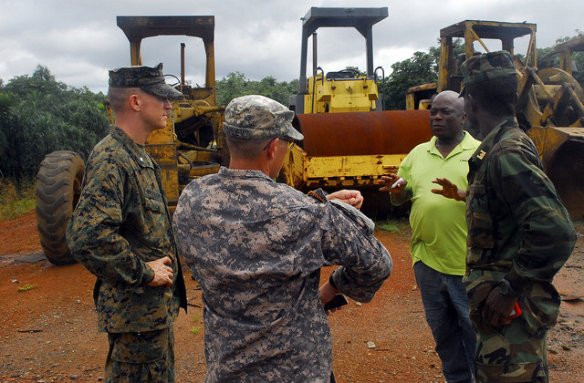While the humanitarian community is still struggling to help end the Ebola epidemic, talk about lessons learned and the need for critical evaluations have been on the way for some time already. Here, I suggest that humanitarians must pay keen attention to the post-Ebola narrative of military victory that is currently emerging. To see the deployment of military personnel, strategies and tactics as the game changer is unfair, because it invisibilises the resilience of the nationals of Ebola affected countries, as well as the efforts of local health workers and (some) humanitarians to address and control the outbreak. However, this narrative also has important strategic consequences for patterns of funding and intervention in future health emergencies.

U.S. Army Africa Clearing the way for Ebola treatment unit sites near Barclayville, Liberia. Photo: U.S. Army Africa. Photo by Pfc. Craig Philbrick/via Flickr
Hence, in the midst of the avalanche of self-criticism that humanitarians will probably bury themselves in, they must also find the time to push for a fair and comprehensive assessment of the military component of the Ebola response: what did humanitarians ask the military to do? Who decided on the parameters of the military response and what was the response? What role did the military play in gaining control of the outbreak? How effective was the response compared to the resources spent?
Read the entire text at the blog of the European Interagency Security Forum (EISF)